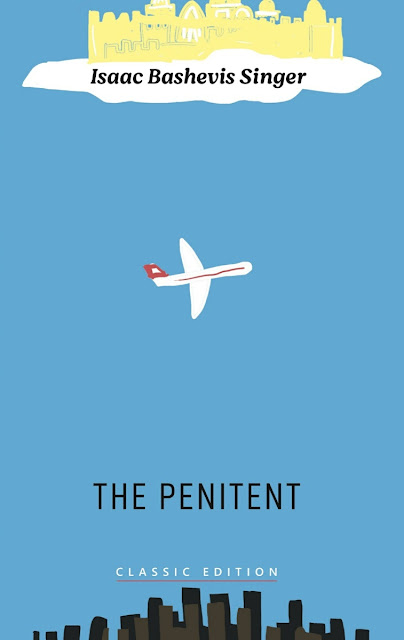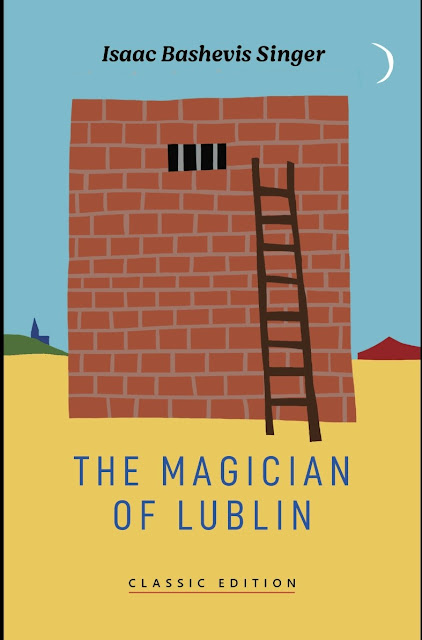Mr. B : George Balanchine’s 20th century by Jennifer Homans. -2022 - 1234 Pages
Sunday, April 30, 2023
Mr. B : George Balanchine’s 20th century by Jennifer Homans. -2022 - 1234 Page
Mr. B : George Balanchine’s 20th century by Jennifer Homans. -2022 - 1234 Pages
Friday, April 28, 2023
THE CAUCASUS Translated by Ivan Bunin - A Short Story-1937- 5 pages- translated from the by Russian by Sophie Lund -1984 - Included in The Gentleman from San Francisco and Other Stories
The Caucases by Ivan Bunin - A Short Story-1937- 5 pages- translated from the by Russian by Sophie Lund -1984 -
Thursday, April 27, 2023
Hippolytus by Euripides- 428 B. C. E. - translated by Rachel Kitzinger- 2016- included in Sixteen Plays by Sophocles, Aeschylus and Euripides-Preface, general introduction, play introductions, and compilation copyright © 2016 by Mary Lefkowitz and James Romm
Hippolytus by Euripides- 428 B. C. E. - translated by Rachel Kitzinger- 2016- included in Sixteen Plays by Sophocles, Aeschylus and Euripides-Preface, general introduction, play introductions, and compilation copyright © 2016 by Mary Lefkowitz and James Romm
An Ancient Reads Project Work
Euripides:died 7 406 BC (aged approximately 74); Macedonia
Born: c. 480 BC; Salamis
CAST OF CHARACTERS (IN ORDER OF APPEARANCE) APHRODITE, goddess of sexual love; also known as Cypris HIPPOLYTUS, son of Theseus, the king of Athens, by an Amazon queen HIPPOLYTUS’ FELLOW HUNTERS, a group of slaves from his household OLD SLAVE, an attendant to Hippolytus
CHORUS of young married women of Troezen
NURSE, Phaedra’s personal attendant
PHAEDRA, wife of Theseus; daughter of King Minos and Queen Pasiphae of Crete
THESEUS, king of Athens
MESSENGER, an attendant of Hippolytus ARTEMIS, virgin goddess of the hunt, of wild things, and of childbirth
Wikipedia has a good summary of the plot and background of the play.
My reading and thinking is now shaped by my intense sorrow over the passing of my beloved wife last year. Tomorrow will be our 17th wedding anniversary.
"THESEUS: I long for the darkness below the earth, I long to die, to dwell in wretched darkness there, now I’ve lost your precious company."
I felt a deep empathy with the words of Theseus concerning the death of his wife.
The attitude toward the competing Goddesses, APHRODITE and Artemis is that harm to humans is just "collateral damage".
By the time Seneca wrote a play based on this, entitled Phaedra, around 500 years later in 58 A.D., many in his elite audience no longer had a literal belief in these Gods but saw the story as a use of these figures to explain very destructive and irrational human behavior.
I have on my reading list Phèdre by Racine first preformed in 1677 in Paris.
The anthology pictured in this post is an excellent starting point in Greek Drama.
Mel Ulm
Wednesday, April 26, 2023
"Everything My Mother Taught Me" by Alice Hoffman- 2019 - A Short Story
"Everything My Mother Taught Me" by Alice Hoffman- 2019 - A Short Story
Tuesday, April 25, 2023
Speak, Memory: An Autobiography Revisited by Vladimir Nabokov - 1947 -352 Pages
Speak, Memory: An Autobiography Revisted by Vladimir Nabokov - 1947 - 352 pages
Monday, April 24, 2023
The Hillside by Jane Smiley - A Short Story- 16 Pages
"The Hillside" by Jane Smiley - A Short Story- 16 Pages - An Amazon Orginal Short Story
Sunday, April 23, 2023
The Book Store Sisters by Alice Hoffman - A Short Story -36 Pages- 2022
“Are you my sister or aren’t you?” Sophie’s face was pale; her black hair was knotted. She looked wild-eyed, and ready to snap. “Of course I am.” Was she being asked to forget her apartment, her job, her own life? “I can stay with you until you get over Matt.” It was the absolute worst thing to say. Isabel knew that it was as soon as she blurted it out, but words that have been said cannot be unspoken, and Sophie was hurt beyond measure. “Is that what you think happens when you lose someone you love? You get over them? You forget them and go on as if they never existed?" From "The Bookstore Sisters" by Alice Hoffman
Friday, April 21, 2023
Shosha by Issac Bashevis Singer - first published 1974- translated from Yiddish by Joseph Singer - 261 Pages
Thursday, April 20, 2023
How to Hide an Empire: a History of the Greater United States by Daniel Immerwahr.- 2019 - 517 Pages
Wednesday, April 19, 2023
Which Way by Theodora Benson-first published in 1931 This edition published in 2021 by The British Library 96 Euston Road London nw1 2db Copyright © 2021 Estate of Theodora Benson Preface copyright © 2021 Tanya Kirk Afterword copyright © 2021 Simon Thomas
Monday, April 17, 2023
The Dawn of Everything: A New History of Humanity by David Graeber and David Wengrow - 2021- 674 Pages
The Dawn of Everything: A New History of Humanity by David Graeber and David Wengrow - 2021- 674 Pages
Saturday, April 15, 2023
Cobalt Red: How the Blood of the Congo Powers Our Lives By Siddharth Kara -January 31, 2023 - 288 Pages
Friday, April 14, 2023
Can You Feel This by Julie Orringer-A Short Story- 2019 -36 Pages
Can You Feel This by Julie Orringer-A Short Story- 2019 -36 Pages
Thursday, April 13, 2023
The Penitent by Issac Bashevis Singer - 1973
Issac Singer (1902-1991-born Poland) won the Nobel Prize in 1986 for the full body of his work. He is best known to the general public as the author of Yentil, the basis for a very popular movie. Singer's, even though he left Poland in 1935 because of the rise of the Nazis, work is very rooted in the culture in which he was raised. He became an American citizen. Singer died and is buried in Florida. . He indicated his biggest influences as a short story writer were Anton Chekhov and Guy de Maupassant
Harold Bloom's New York Times Review
Bloom completely trashes The Penitent-
"The Penitent is a translation of a short novel called ''Der Baal Tshuve'' in Yiddish. Perhaps this title should have been translated as ''The Master of Turning,'' which would have been more literal and also a proper tribute to its distinguished author, who is a master of metamorphoses. But perhaps this book, first published in 1974, ought not to have been translated at all. It is a very unpleasant work, without any redeeming esthetic merit or humane quality. Singer's best book, retroactively worthy of the Nobel Prize he won in 1978, was his ''Collected Stories,'' published last year. ''The Penitent,'' a failed attempt at a Swiftian diatribe against the contemporary world, is his worst book, and yet it does expose limitations that are not Singer's alone, and so it sadly defines much that is uneasy and probably insoluble in the dilemmas of Jewish culture at this time." Harold Bloom-September 25, 1983
After reading Bloom's review I am a bit at a loss. I thought why post on the book if it is totally without merit. Then felt one of my blog goals is to jounalize my reading.
Bloom says Singer's Collected Stories are worthy of his Nobel Prize
Wednesday, April 12, 2023
The Vaster Wilds by Lauren Groff - Forthcoming September 2203- 272 Pages
The Vaster Wilds by Lauren Groff - Forthcoming September 2203- 272 Pages
Thursday, April 6, 2023
The Magician of Lublin by Issac Bashevis Singer - 1960-translated from the Yiddish by Elaine Gottlieb and Josepth Singer- 183 Pages
Tuesday, April 4, 2023
The Reading Live Review- March 2023-
Featured Post
Fossil Men: The Quest for the Oldest Skeletons and the Origins of Humankind by Kermit Pattison. - 2020 - 534 pages- Narrative Nonfiction
Fossil Men: The Quest for the Oldest Skeletons and the Origins of Humankind by Kermit Pattison. - 2020- 534 pages- Narrative Nonfiction Fos...

-
Nothing Can Destroy the Faith and Strength of the people of the Philippines - Mel u, Quezon City and Candelaria, November 10, 2013- commen...
-
My Posts on the literature and history of the Philippines Francisco Arcellana (1916 to 2002) was a highly regarded poet, essayist, crit...
-
"The Ring" by Byron MacMahon (1976, 4 pages) The Irish Quarter A Celebration of the Irish Short Story March 11 to ? ...




















